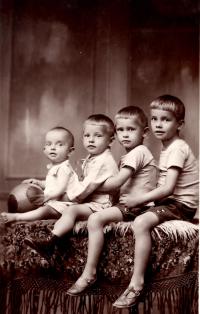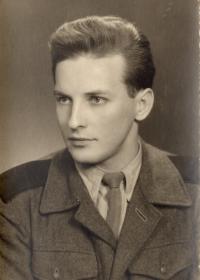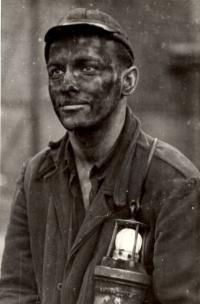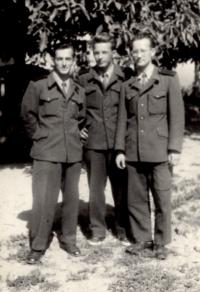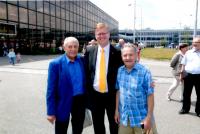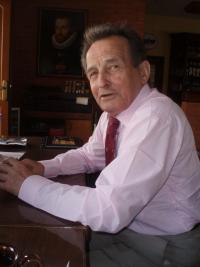There were eight of them, and two hundred of us. We could have taken them down just with our caps
Božetěch Kostelka was born on 16 January, 1931 in Brno. In his childhood and youth he lived in a catholic house in Vyškov, where much cultural and club activity took place, which had a large influence on him. In 1945 he participated in his first scouting camp organised near Hanušovice. He witnessed the Red Army deserters murdering the whole Czech family residing there. In 1949 his father and older brother were arrested; at the end of 1950 he was assigned to the auxiliary technical troops. He gradually worked during building bunkers in Svatá Dobrotivá, and later also in Dejvice. Finally he also underwent hard labour in the Ostrava mines where some of his co-workers lost their lives. To cover a tragic accident the soldiers were dismissed all around Ostrava. After returning from military he worked at the tractor station in Vyškov, where he trained a basketball team successfully to get it up to the first league. In 1959 he got married. In 1960 he moved with his wife to Brno. He worked in heavy engineering plant in Heršpice; since 1970 trained a gymnastic club in Staré Brno. In 1991 retired, but still helped with restauration of Orel. In 1992 he became general secretary. He is still active in Orel mainly in administrative area, preparation of ball games and also working with archive recordings.

